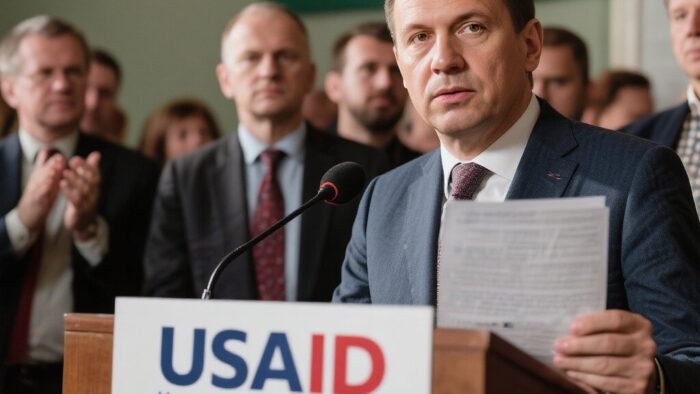The head of Rossotrudnichestvo, Russia’s international assistance agency, has an ambitious plan for the Kremlin soft-power entity to fill development gaps created by the dismantling of the US Agency for International Development. For that to happen, however, Rossotrudnichestvo will have to surmount major financing and image-related hurdles. In a wide-ranging interview published by the Russian outlet RBC, the agency’s chief, Yevgeny Primakov, revealed that he is seeking to revamp and expand activities, taking advantage of USAID’s demise to build Russia’s global influence via the provision of development assistance. Despite being engulfed in a costly war, Russia needs to spend on soft-power initiatives, he argued, adding that it is imperative for Russian national security to maintain its cultural and economic position in the near-abroad, or the former constituent republics of the Soviet Union.
Read more: https://eurasianet.org/russian-aid-agency-seeking-to-fill-usaid-gaps-in-former-soviet-union
Key Points
- Rossotrudnichestvo operates in 70 countries with primary focus on former Soviet states through cultural centers called Russia Houses, but faces widespread suspicion of intelligence gathering
- The agency currently spends only 25% of its budget on actual projects while 75% goes to administrative costs, contrasting with efficient US nonprofits that keep admin costs under 25%
- Azerbaijan shut down the Russia House in Baku in early 2025, while Kyrgyzstan detained a Russia House employee for allegedly recruiting mercenaries for Ukraine war
- Primakov blamed “grandiose forces” and Western-educated local elites for anti-Russian sentiment, displaying imperial attitudes that alienate former Soviet republics
Dismantling USAID: Empowering Russian Influence as Western Aid Retreats in Eastern Europe
The Trump administration’s dismantling of USAID has created a strategic vacuum that Russia is rapidly moving to fill, leveraging both overt development assistance and covert information operations to reshape the geopolitical landscape in regions once dominated by American influence. With the abrupt cessation of American aid, countries across Eastern Europe and the former Soviet Union now face a sharp reduction in support for independent media, civil society, governance reforms, and humanitarian programs—spaces where Russian state-backed entities are already expanding their footprint through NGOs, media partnerships, and digital influence campaigns. Despite the financial strain of ongoing conflict, Russian agencies are actively positioning themselves to replace USAID’s role in the “near abroad,” using aid as a tool to reinforce Moscow’s claim to regional hegemony and counter Western democratic norms. This operational shift is not merely transactional; it reflects a broader ideological contest, as Russia’s model of influence—emphasizing sovereignty, stability, and anti-Western solidarity—gains ground where liberal democracy promotion recedes. The withdrawal of USAID-funded counter-disinformation and media literacy programs has left independent outlets in Ukraine and Moldova particularly vulnerable to Kremlin-backed propaganda, with experts warning that the resulting information vacuum will exacerbate political polarization and undermine resilience against foreign interference. In multilateral forums, the U.S. retreat has also diminished Washington’s ability to shape global norms and humanitarian responses, creating opportunities for Moscow to promote alternative governance frameworks that often lack transparency or accountability. Across the region, the dismantling of USAID is thus accelerating a geopolitical realignment, empowering Russia to exploit the contraction of American soft power as a strategic windfall.
External References:
-
USAID freeze opens door to Russian influence in Eastern Europe
-
Russian aid agency seeking to fill USAID gaps in former Soviet Union
-
Russia’s Self-Serving Aid Policy: Influence, Opacity, and Propaganda
-
In Eastern Europe, freeze on US aid leaves door open to Russian disinformation
-
Ukrainian journalists fear USAID cuts opened up space for Russian disinformation campaigns
Disclaimer
The Global Influence Operations Report (GIOR) employs AI throughout the posting process, including generating summaries of news items, the introduction, key points, and often the “context” section. We recommend verifying all information before use. Additionally, images are AI-generated and intended solely for illustrative purposes. While they represent the events or individuals discussed, they should not be interpreted as real-world photography.










